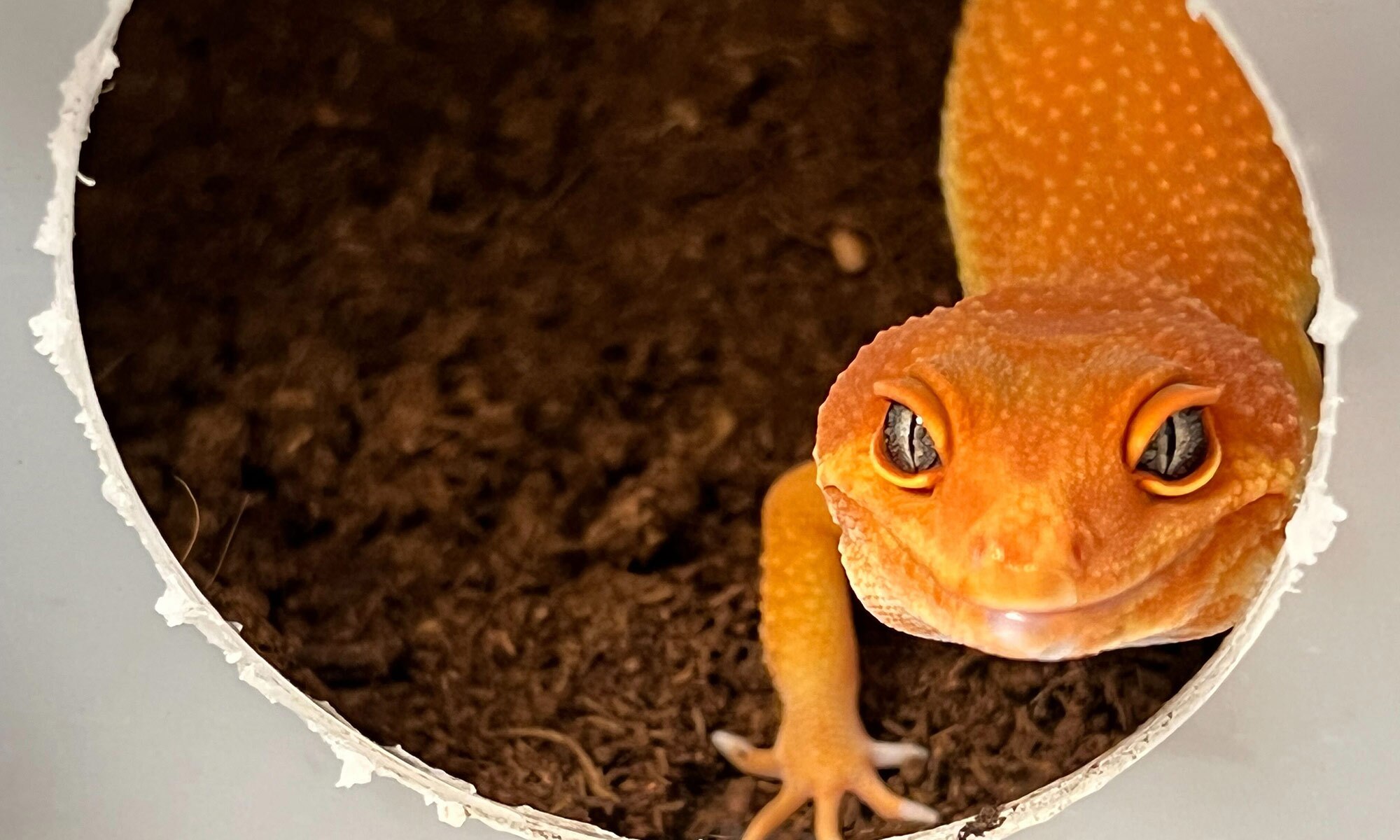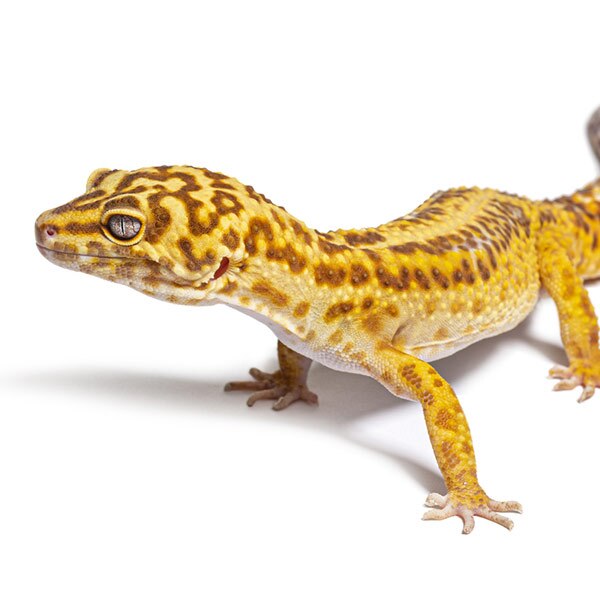
Learn about the amazing variety of colors and patterns that Leopard Geckos display
Leopard Geckos have long been a favorite among reptile enthusiasts, but one of the most fascinating aspects of this species is the incredible variety of morphs available today. Morphs are genetic variations that influence a Leopard Gecko’s color, pattern, and sometimes even their size or eye color. Over the years, dedicated breeders have introduced an astonishing array of morphs, turning Leopard Geckos into living works of art and making them one of the most popular pet reptiles worldwide.
The first recognized Leopard Gecko morph was the Tremper Albino, which captivated the reptile community with its lack of dark pigmentation. This groundbreaking discovery paved the way for decades of innovation, leading to the stunning diversity of morphs we see today. From the bold patterns of the Tangerine Tornado to the mesmerizing lavender hues of the Lavender morph, there’s a Leopard Gecko morph to suit every preference.
So, why are morphs so popular? For many, it’s the sheer beauty and uniqueness each gecko brings. Morphs allow hobbyists to express their creativity and passion through breeding projects, while collectors are drawn to the rarity and individuality of these colorful reptiles. Additionally, morphs have played a significant role in raising awareness and excitement about Leopard Geckos, further cementing their place as one of the most beloved reptiles in the world.
At Nealon Reptiles, we are proud to work with nearly every Leopard Gecko morph, from classic favorites to cutting-edge creations. Explore the dazzling world of Leopard Gecko morphs and discover the perfect addition to your collection!

One of the first morphs discovered, the Tremper strain of Albino is almost certainly the most popular and common genetic mutation in Leopard Geckos.

Our favorite strain of the albino gene, the Bell Albino Leopard Geckos are beautiful Leopard Geckos, often with great contrast in their colors.

A third strain of the albino gene in Leopard Geckos, Rainwater Albinos (also known as Vegas Albinos) are interesting to work with and make beautiful Geckos.

The most common and popular strain of the Snow Gene, Mack Snow Leopard Geckos can be found in almost every collection of these Geckos.

The most sought after strain of Snow, the Albey Snow Leopard Gecko displays amazing colors and impacts the patterns of many other genes.

Originating from The Urban Gecko (TUG, get it?) the TUG Snow Leopard Gecko is a beautiful strain of the snow gene and one of our favorites.

A line-bred Leopard Gecko that is melanistic, the Black Night is the darkest Leopard Gecko you can find. All Black individuals are stunning – and expensive!

Our favorite kind of Leopard Gecko, the Tangerine is a beautiful line-bred gecko that displays some of the most orange colors in the reptile kingdom.

An eye mutation, Eclipse Leopard Geckos display a dark eye, lending to its name. Eclipse Leopard Geckos are popular pets and breeders.

One of the newer genetic mutations in Leopard Geckos, the Cipher gene creates a beautiful gecko. There is still a lot of work to do to get the gene combined with other genes.
There are a few Leopard Gecko morphs and morph combinations that are associated with health problems or fatal outcomes. It’s crucial for you to understand these risks to ensure ethical breeding practices and the well-being of your Leopard Geckos. While this list is not comprehensive, it does include some of the more common genes that you should avoid.
Enigma Morph
The Enigma morph is known for its unique, speckled patterns, but it can also carry a neurological condition called Enigma Syndrome. Symptoms include disorientation, spinning, head tilting, and difficulty hunting or eating. The severity of Enigma Syndrome varies, but it is a lifelong condition with no cure.
Here at Nealon Reptiles, we do not have any Enigma Leopard Geckos – and we encourage anyone thinking about breeding them not to do so. Despite what some breeders think or say, you cannot ‘breed out’ the health conditions associated with this gene.
Lemon Frost Morph
This morph is prized for its bright yellow color, but it is often associated with skin tumors (most commonly fibrosarcoma). These tumors can develop at any age and may affect the gecko’s quality of life and lifespan. Due to this issue, all ethical breeders avoid working with Lemon Frost geckos.
We do not keep any Leopard Geckos with this dangerous genetic mutation, nor should you.
White & Yellow Morph
Similar to the Enigma morph, some White & Yellow geckos may exhibit neurological symptoms, often called White & Yellow Syndrome. Symptoms include tremors, circling, and head tilts, though these issues are not present in all individuals. This seems to pop up when breeding White & Yellow Leopards together. For this reason, we only breed White & Yellows when only one of the parents carries this gene. Breeding them in this manner, we have never seen our Leopard Geckos exhibit the neurological conditions that can pop up with this mutation.
Any Albino Morph
While not unhealthy, Albino Leopard Geckos seem to have some issues you should be aware of. While not all of these are bad, you should still be aware.
Many Albino Leopard Geckos are very sensitive to light. If you’ve ever seen them close their eyes in a brightly lit room or out in the sun, it is because of this. Many people will think that their Gecko has a medical condition that needs to be addressed, but they need to avoid bright light with those Geckos.